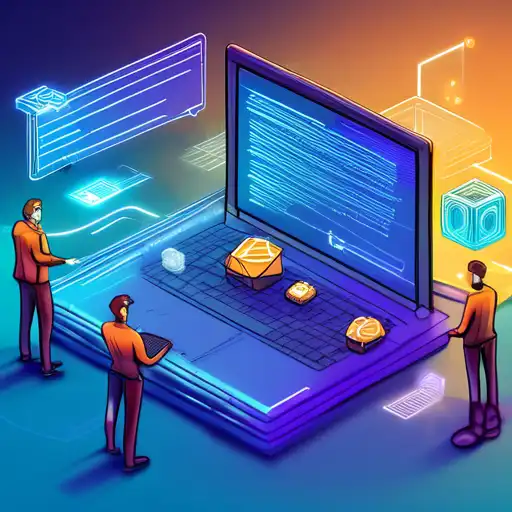Introduction to Smart Contracts
Smart contracts represent a revolutionary aspect of blockchain technology, enabling automated, self-executing contracts with the terms of the agreement directly written into code. These digital contracts run on a blockchain network, ensuring transparency, security, and efficiency without the need for intermediaries.
How Smart Contracts Work
At their core, smart contracts are programs stored on a blockchain that automatically execute when predetermined conditions are met. They follow simple "if/when...then..." statements that are coded into the blockchain. This automation not only speeds up transactions but also eliminates the possibility of manual errors or third-party manipulation.
Benefits of Smart Contracts
Smart contracts offer numerous advantages, including:
- Trust and Transparency: Since the contract terms are visible and accessible to all relevant parties, there's no need to question the integrity of the agreement.
- Security: Blockchain's decentralized nature makes smart contracts incredibly secure against hacking and fraud.
- Efficiency and Speed: By automating tasks that would otherwise require manual processing, smart contracts significantly reduce the time and costs associated with traditional contract execution.
- Accuracy: Automated contracts minimize the risk of errors that are common in manually filled forms.
Applications of Smart Contracts
Smart contracts find applications across various sectors, including:
- Finance: Automating payments and claims in insurance, loans, and other financial services.
- Real Estate: Streamlining property sales and rentals without the need for brokers.
- Supply Chain: Enhancing transparency and efficiency in tracking the production, shipment, and delivery of products.
- Healthcare: Securely managing patient records and ensuring only authorized personnel have access.
Challenges and Considerations
Despite their potential, smart contracts face challenges such as legal recognition, scalability issues, and the need for high-quality code to prevent vulnerabilities. It's crucial for businesses and individuals to understand these limitations and work towards solutions that can integrate smart contracts more seamlessly into existing legal and operational frameworks.
Future of Smart Contracts
The future of smart contracts is promising, with ongoing advancements in blockchain technology paving the way for more complex and versatile applications. As the technology matures, we can expect wider adoption across industries, further revolutionizing how we execute agreements and transactions in the digital age.
For more insights into blockchain technology and its applications, explore our Blockchain Basics guide.
